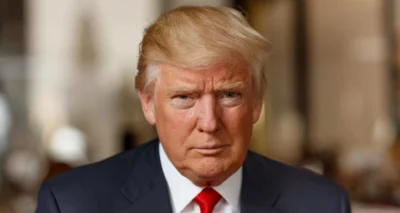The following is a joint press release issued by the Deputy Secretary of State and EEAS Secretary General Sannino.
On September 9-10, 2024, Deputy Secretary of State Kurt Campbell and European External Action Service (EEAS) Secretary General Stefano Sannino held the seventh high-level meeting of the U.S.-EU Dialogue on China and the sixth meeting of the U.S.-EU High-Level Consultations on the Indo-Pacific.
Deputy Secretary Campbell and Secretary General Sannino discussed recent U.S. and EU engagement with China and the trajectory of their respective bilateral relationships. "As we continue to engage in robust competition with China, it remains important to keep open channels of communication." They reiterated their openness to continued substantive diplomacy with China both in areas of common interest and in areas of difference. They affirmed the importance of close coordination between the United States and the European Union in advancing shared objectives and democratic values.
Deputy Secretary Campbell and Secretary General Sannino expressed deep concern about China’s exports of dual-use goods used by Russia against Ukraine, as well as China's involvement in sanctions evasion. They recognized that China's support for Russia's military base enables Russia to maintain its war against Ukraine, posing a threat to global security. They emphasized that any peace proposal for Ukraine must be based on international law principles, including respect for sovereignty.
Both sides acknowledged the importance of balanced economic relations with China, committing to rules-based trade practices. The United States and EU will address challenges posed by China's non-market policies, overcapacity, and economic coercion. Both parties confirmed their intention to invest in resilience by reducing dependencies in strategic sectors.
The human rights situation in China was also discussed, including recent engagements on this subject. Both sides called for increased global awareness and action against human rights abuses by China, particularly in Tibet and Xinjiang. They urged China to cooperate with international human rights mechanisms.
The United States and EU underscored maintaining peace across the Taiwan Strait as essential for international stability. They called for peaceful resolution through dialogue while opposing any unilateral attempts to change the status quo by force or coercion.
Concerns were raised about tensions in the East and South China Seas due to China's actions endangering navigation safety. The two sides welcomed diplomatic efforts between China and the Philippines but remained concerned about escalatory actions against lawful operations in these waters.
In addition to discussions on maritime security, they addressed ongoing challenges in Myanmar, condemned DPRK’s arms transfers to Russia, and discussed engagement with India on global challenges including security issues.
They reaffirmed commitments under initiatives like PGI and Global Gateway aimed at building clean energy connectivity across Indo-Pacific regions. Maritime security cooperation was highlighted along with plans for joint activities such as a potential U.S.-EU Maritime Security Conference.
Efforts were noted towards supporting Pacific Island countries through regional bodies like PIF focusing on blue economy infrastructure projects alongside Australia’s investment opportunities supporting fisheries sectors across Pacific Islands.
Finally, both parties reaffirmed their commitment towards advancing human rights globally including preventing discrimination based on sexual orientation or gender identity within Indo-Pacific regions while planning further talks scheduled for Washington D.C., first half 2025.





